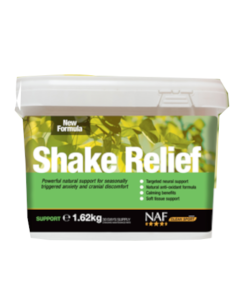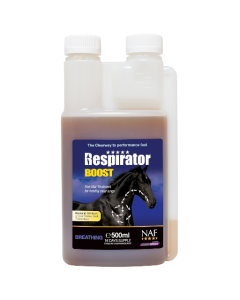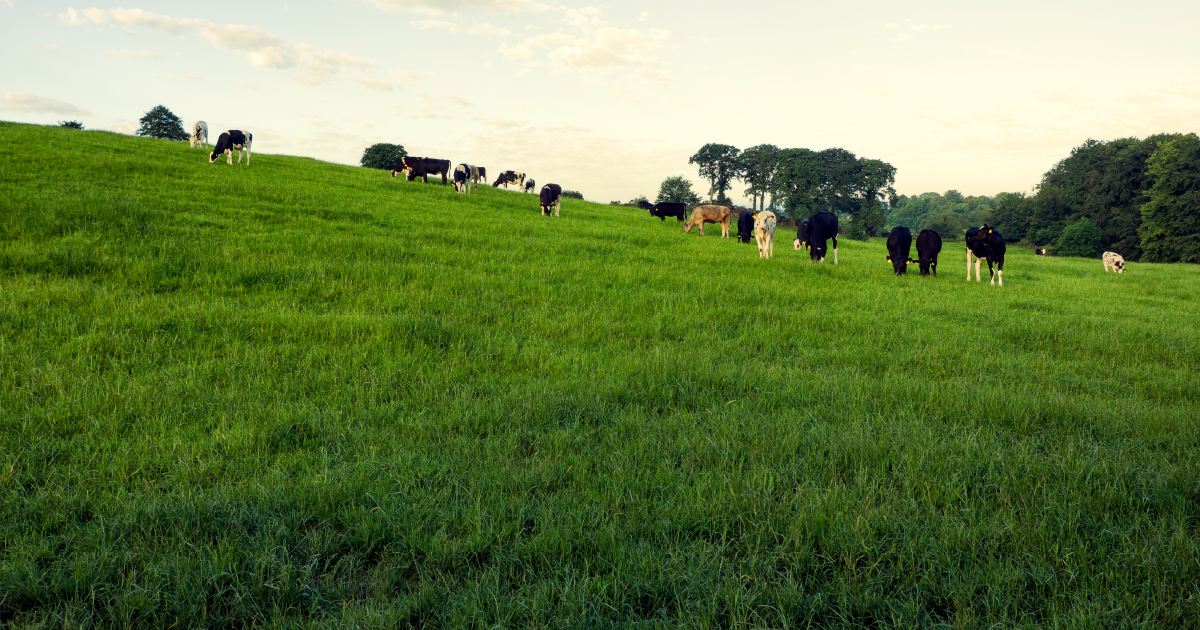How to manage hay fever in horses
-

- 6 Feb 2023
- 0 Comments

When the flowers begin to bloom and the bees are busy, we all know what season is fast approaching - spring. The warm, sunny days allow us to spend more time outdoors with our horses and make the most of the precious sunlight hours. However, for some of us, this time of year also brings with it a sense of dread with the impending result of pollen allergies, or as we all know it, hay fever.
The allergy to pollen and dust particles causes your horse's eyes to water and their nose will begin to run as the blood vessels dilate and the mucous membrane is inflamed.
Symptoms of hay fever to look out for
With billions of pollen particles being released into the air from all plants and trees, it is difficult to keep our horses comfortable during this time of the year. But how do we know what signs of a pollen allergy to look for, and when are we most likely to see these?
Symptoms include;
- Coughing
- Lethargy
- Increased eye and nasal discharge (runny nose)
- Headshaking
- Lack of concentration
- Poor performance
- Possible behavioural problems
Pollen counts are usually highest in the early morning hours and will peak around noon, so your horse's allergies will be greater at this time. Many of us have access to a smartphone that can tell us when the pollen count is at its strongest. With this technology, you can tailor the time you are out and about with your horse and can prepare them for upcoming allergies.
Our top tips for managing allergies in your horse or pony
- Whether your horse is in the stable or out in the field, you must make sure they always have access to a fresh supply of water.
- Avoid placing water buckets under trees or in areas where you know there are high pollen counts.
- When stabling your hay fever prone horse, use dust extracted bedding. Although dust is not the cause of pollen allergies, it will irritate your horse's skin and already sensitive eyes and nose. Check with your store supplier which bedding is dust free to ensure you are using the correct brand.
- When preparing hay and feed for your horse, avoid additional irritation from dust by wetting your horse's hay and feed prior to their mealtime.
- If you know areas which are prone to high pollen counts, try to avoid riding or turning horses out in those locations.
- Steer clear of letting your horse outdoors in the early hours of the day. As a rule, pollen counts are highest in the morning and can peak midday. Try to avoid riding on days when pollen counts are particularly high. So, if you're used to exercising your horse in the early hours, a change to your normal routine might be a good idea.
- Respiratory supplements can be used to aid the management of your horse’s pollen allergies by helping the respiratory mucosal immune system which surrounds the lungs.
- For those that need to be turned out for grazing or on exercise, fly masks and nose nets can be used to reduce the amount of pollen that meets and affects your horse. Another source of protection can be a fly or sweet itch rug, although they are not primarily for pollen allergies, but they can reduce the particles touching your horse’s skin.
What do our equine specialists think?
Sarah Fulwood, our equine specialist from the Lancaster store, has provided some advice for owners and their horses.
As professionals in our industry, RAMAs would always recommend seeking veterinary advice to get an accurate diagnosis from your vet. Regardless of whether the owner wishes to seek veterinary advice, or not, they should always be aware that as part of the globally recognised gold standard in animal welfare (the 5 freedoms) horses have the right to be free from pain, injury, and disease and the right to be free from discomfort.
Practical steps owners can take to ease their horse's discomfort include:
- Fitting a nose net to the horse bridle when exercising
- Using a full-length fly mask with nose covering when turned out
- Stabling the horse during the day when pollen levels are highest & turning out at night instead
- Working out which type of pollen your horse is allergic to & avoiding it (such as rape seed)
- Feeding your horse from the floor encourages natural drainage
- Use specific herbs in the diet which are thought to help expel mucus & cleanse the lungs. NAF Respirator Boost is an ideal product for this job.
Sarah's recommended products:
NAF Respirator Boost contains both MSM and echinacea & provides valuable nutritional support to the respiratory mucosal immune system and the delicate capillary blood vessels that surround the lungs. It also contains a concentrated solution of natural anti-oxidants, alongside herbs such as ginger, rosehip and blueberries, chosen for their targeted support of healthy lung function. Echinacea is included for immune system support and the essential oils in Respirator Boost help maintain clear airways.
NAF Shake Relief is the other product we would recommend. By improving the diet with targeted nutrition, the horse’s natural defences are optimised. Shake Relief contains a unique complex of scientifically verified, naturally sourced antioxidants to flush the free radicals out of the system. Soothing herbs are included with bio-available magnesium to support a calm, confident outlook. Shake Relief also contains an immune support complex which targets the immune systems, vital to the horse’s defences and wellbeing, and MSM to support soft tissue and nerve tissue. Shake Relief should be fed throughout the peak season for each individual and may be increased as and when needed.














